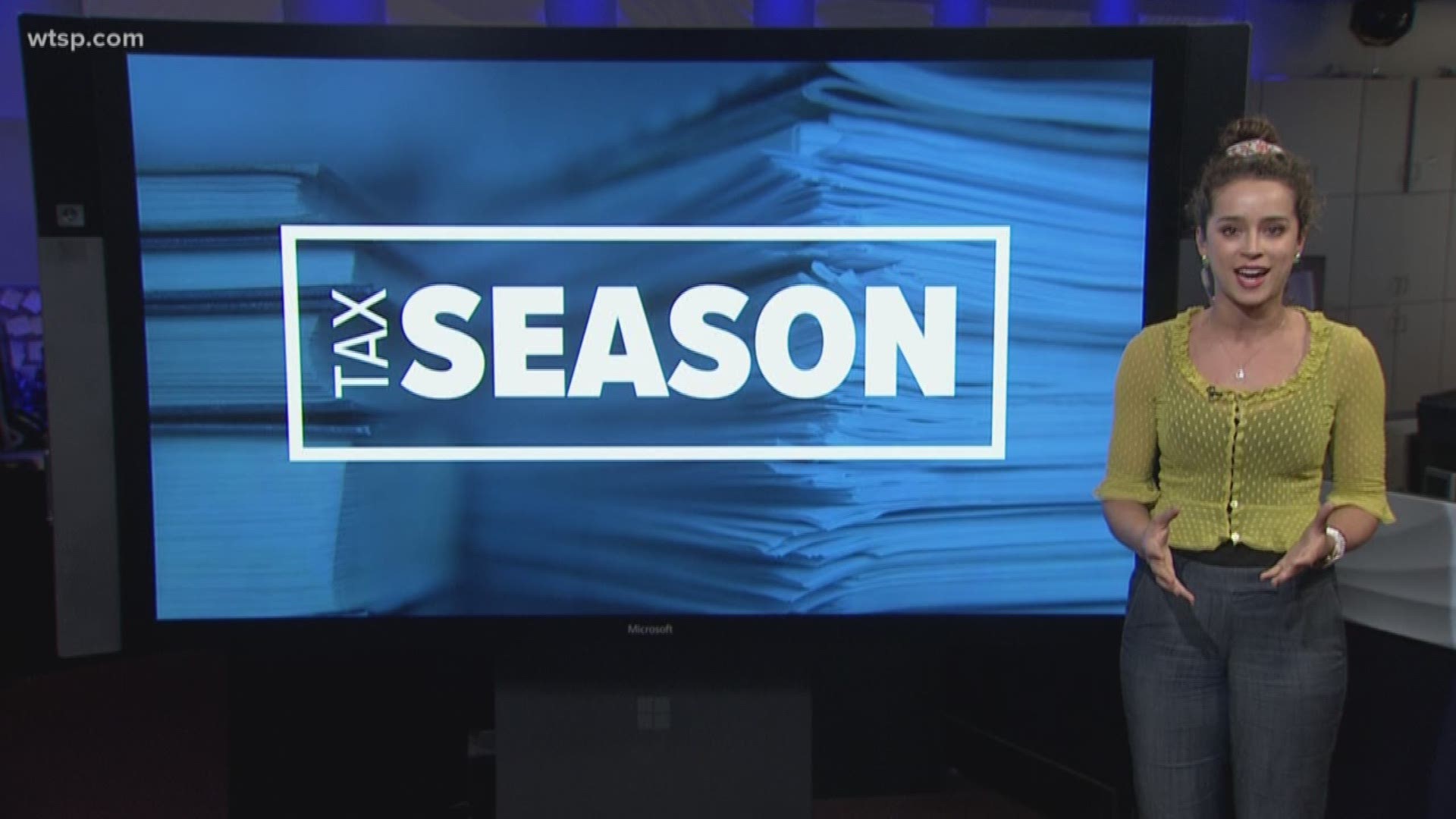SAINT PETERSBURG, Fla. — Tax season is officially upon us. Monday is the first day you can start filing your taxes, and there are a bunch of changes this year. That’s because this will be your first time filing under the “Tax Cuts and Jobs Act” -- the new tax code that went into effect in 2018.
We sat down with Attorney Linda Suzzanne Griffin to discuss the major changes in this new code and what they mean for you.
First, the Internal Revenue Service has adjusted the tax brackets for inflation, something you'll probably notice -- especially if you're paying middle rates.
The biggest thing you'll see is a change to the standard deduction. It's now $12,200 for individuals, $18,350 for heads of household and $24,400 for married couples filing together.
Another section that will be different: itemized deductions. The new tax law puts limits on those tax breaks -- meaning only a small percentage of Americans will want to itemize their deductions going forward. Basically, if your standard deduction is higher than what your itemized deductions would add up to be, you could definitely consider going with the standard deduction. If that's not the case for you, and you're dealing with high mortgage interest, many charitable donations or high medical expenses, you may fall into the smaller group of people who should talk to someone about itemizing them.
"Most people are not going to be itemizing their deductions these days," Griffin explained. "Because the standard deductions are so high, you’re probably not going to need to keep track of all the separate little things that you could itemize."
And a third change that Griffin highlighted impacts business owners and rental property owners the most.
"There’s a new code section 199, that talks about the qualified business deduction. If you have businesses, rental properties, etc., it is extremely important to discuss with your CPA because it is an extremely complicated area of law," Griffin said.
And if you're wondering when you should file your taxes? Griffin emphasized there is no time like the present.
“As soon as possible! As soon as you have a complete return, you want to get in the front of the list for the refunds," Griffin said.
If you file after Feb. 15 and the government shuts down again, the IRS is going to need workers to handle all those tax filings. And, Griffin warns there might not be enough workers to deal with all the refunds. So, get ahead on filing!
What others are reading right now:
- You can make $120,000 to be Florida's director of cannabis
- Deputies investigate video showing boy forced off school bus, then attacked
- 11-year-old boy is a crocheting prodigy
- Woman sentenced to life in prison for prostituting out 14-year-old girl
- Man who flew with an air ambulance service had a fake nursing license
►Make it easy to keep up-to-date with more stories like this. Download the 10News app now.
Have a news tip? Email desk@wtsp.com, or visit our Facebook page or Twitter feed.

